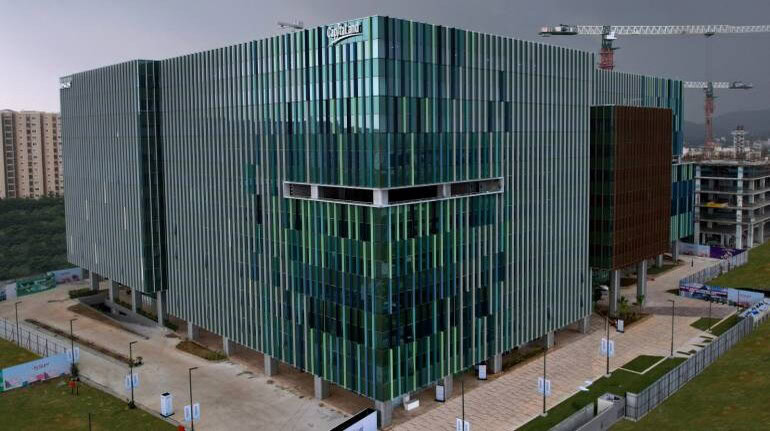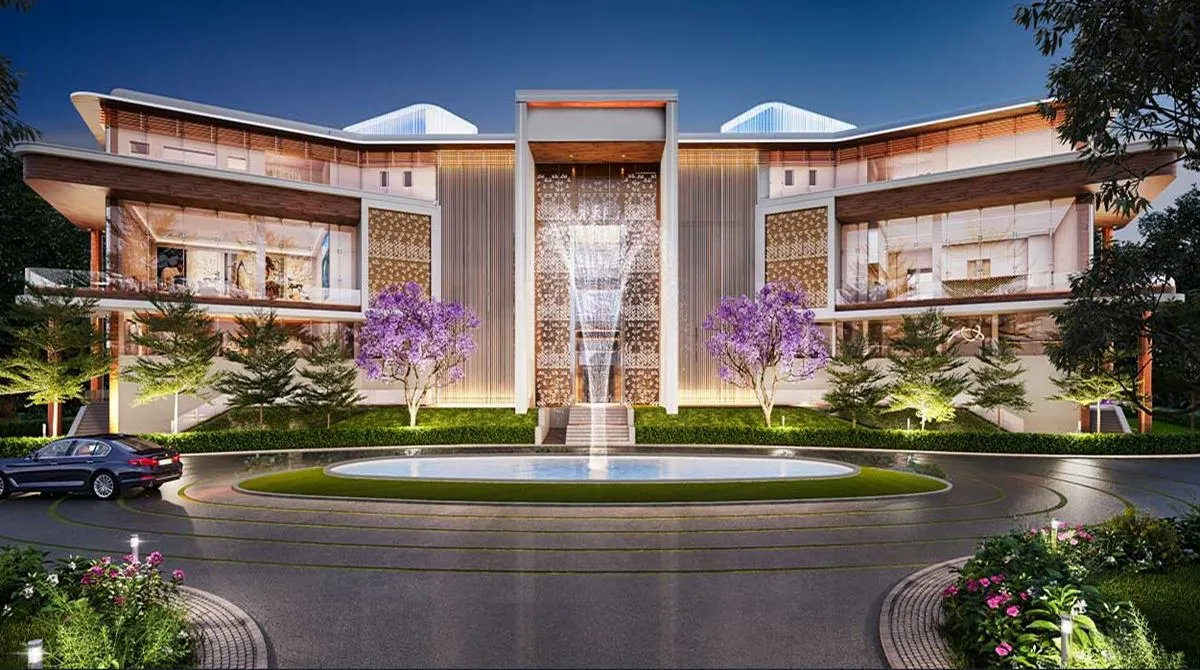Consider the busy IT corridor of Hinjawadi in Pune. IndiaLand, a well-known commercial real estate developer, plans to build a cutting-edge office complex there. This is only one aspect of IndiaLand’s broad strategy to invest extensively in the Indian real estate market over the next five years, with the goal of doubling its asset worth.
IndiaLand Prepares for Growth in Indian Market
IndiaLand, Americorp Group’s Indian branch located in Dubai, is betting big on the future of Indian real estate. The firm aims to spend ₹1,500 crore (US$190 million) over the next three years to extend its presence throughout the nation.
The ambitious aim includes tripling the asset value in India from ₹3,000 crore (US$380 million) to ₹7,000 crore (US$880 million) within five years.
Strategic Expansion in Key Cities
IndiaLand’s expansion plan takes a multifaceted approach, concentrating on significant cities such as:
- Chennai
- Pune
- Coimbatore
- Bengaluru
The business intends to strategically increase its office space and industrial estate assets in these regions. They are also actively exploring site acquisition in Bengaluru to build luxury, independent office buildings.
Currently, IndiaLand has a portfolio of about 6 million square feet (MSF) of functioning office parks, industrial parks, and even a mall scattered among the stated locations. Over the next 3-5 years, they want to add a large amount of extra space:
- 2.2 MSF of Grade A office space in Hinjawadi, Pune (an addition to their current presence)
- 0.8 MSF of extra office space in Coimbatore.
Beyond Metros: Tier II Cities Gain Focus
IndiaLand understands the potential of Tier II cities and the rising demand for office space in these areas. Coimbatore, for example, is seeing an increase in demand that outstrips available Grade A office space.
“Other Tier II cities, such as Trichy and Madurai, are also gaining traction,” adds Salai Kumaran, Group COO of IndiaLand. “With rentals in Tier I cities skyrocketing, most companies are already looking to Tier II cities to optimize real estate costs.”
This change in emphasis reflects a larger trend in the Indian commercial real estate sector, where Tier II cities are becoming more appealing alternatives for corporations looking for cost-effective solutions.
IndiaLand Targets Industrial and Logistics Growth
The growth ambitions go beyond office space. IndiaLand intends to significantly expand its industrial and logistics space portfolio, notably in Pune and Chennai.
- Over the next five years, the business intends to treble its current 0.5 million square feet of leased industrial space in Pune.
- Construction on the first phase of their new industrial and logistics park in Chennai, which covers 150 acres of a total 500-acre complex, is slated to begin shortly.
- They want to expand their current 20-acre industrial and logistics complex in Pune.
These initiatives demonstrate IndiaLand’s commitment to meeting the rising need for advanced industrial and logistical infrastructure in India.
Partnerships and Strategic Land Acquisition
IndiaLand’s memorandum of understanding with the Tamil Nadu government to invest ₹600 crore in office parks and industrial spaces demonstrates their approach of partnering with local authorities to promote development.
Looking Ahead: A Bullish Outlook for Indian Real Estate
IndiaLand’s aggressive development ambitions indicate a positive picture for the Indian real estate sector. The company’s emphasis on strategic development across important cities, entering Tier II markets, and catering to the expanding demand for industrial and logistical space enables it to capitalise on considerable growth prospects in the years ahead.
While this article focuses on IndiaLand’s development goals, it’s crucial to remember that the Indian real estate industry is always changing. Here are some more aspects to consider:
- Market fluctuations: Real estate markets are influenced by economic circumstances and government restrictions.
- Competition: IndiaLand will face competition from both existing firms and new entrants to the sector.
- Emerging Trends: Technological improvements and shifting corporate demands may need changes to development plans.
By being updated about these aspects and remaining adaptive, IndiaLand can guarantee that its growth plans coincide with the ever-changing Indian real estate market.
FAQs
Q: What are IndiaLand’s main areas of concentration for its Indian growth plans?
A: IndiaLand is looking to increase its office space and industrial estate portfolio in important locations such as Chennai, Pune, Coimbatore, and Bengaluru. They are also planning to build independent office premises in Bengaluru and expand into Tier II towns with significant office space demand.
Q: How much does IndiaLand want to spend in Indian real estate?
A: The corporation aims to spend ₹1,500 crore (US$190 million) over the next three years.
Q: What is IndiaLand’s plan for Tier 2 cities?
A: IndiaLand acknowledges the potential of Tier II cities and intends to capitalize on the increased demand for office space in these areas by creating Grade A buildings.
Q: Is IndiaLand increasing its industrial and logistics space portfolio?
A: Yes, IndiaLand intends to significantly expand its industrial and logistics portfolio, notably in Pune and Chennai. They want to quadruple their current leased space in Pune and establish new industrial parks in both cities.
Conclusion
IndiaLand’s aggressive investment plans demonstrate a strong conviction in the potential of the Indian real estate sector. Their emphasis on strategic development, asset class diversification, and entry into Tier II cities equips them to capitalize on a variety of growth prospects.
However, managing the dynamic world of Indian real estate will need agility and a good understanding of market trends, competition, and changing company requirements.
As IndiaLand continues on this expansion adventure, its success will be determined by its ability to adapt and provide high-quality commercial spaces that meet the changing demands of Indian companies.
Reference by:
- Cushman & Wakefield – India Market Roundup
- JLL India – Tier 2 Cities: The Next Growth Story
- Knight Frank – India Logistics Sector Report
Similar Topics
Boom or Bust? Unveiling the Future of Dubai’s Real Estate Market
Dubai’s property market has defied global trends, but will rising interest rates and geopolitical tensions trigger a slowdown? Explore the…
The Real Estate Market Gears Up for a New Generation of Homeowners
Explore the factors driving a surge in new homebuyers and how the real estate market is adapting to their evolving…
How NRI Investments are Shaping Indian Real Estate Market
Explore the rising trend of NRI investment in Indian real estate. Understand the factors driving this growth, investment options, and…
Why Real Estate Players are Turning to Debt Deals
Explore the rising trend of real estate players utilizing debt deals to finance projects. Understand the benefits, challenges, and future…
Trends in India Commercial Real Estate Market
Dive into the evolving landscape of India’s commercial real estate market. Explore key trends, investment opportunities, and the future outlook…
5 Trends shaping Indian Residential Real Estate Landscape in 2024
Dive into the top 5 trends transforming India’s residential real estate market in 2024. Discover evolving buyer preferences, innovative…






